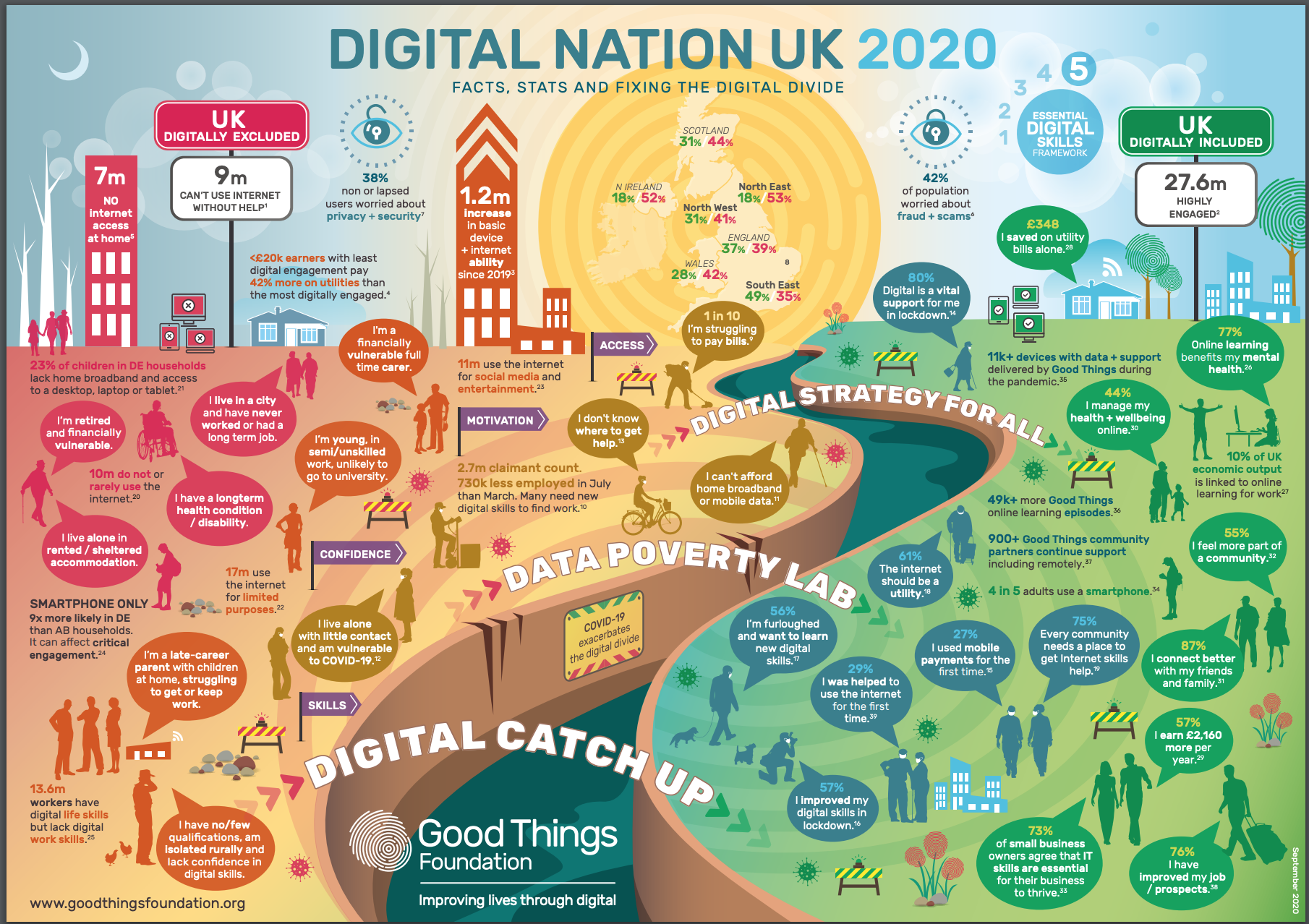
In an increasingly digital age, those who are not keeping up to speed with the digital world are at risk of being cast aside.
The ever-changing advancements in technology mean that digital skills are becoming more important for staying socially connected, accessing important services and information, and improving the chances of employment meeting the demands of the modern workspace.
This is leading to the digital divide across the country, particularly following the pandemic where many relied on internet access to work and stay in touch with loved ones.
“The price was going up all the time of the wifi each month and it was just too complicated and I thought I don’t want to be doing this, I’m retired, I just want a peaceful existence,” says 70-year-old, Pauline Davies.
“It definitely puts me at a disadvantage compared to other people, especially now under the current climate. Since COVID-19, everything is geared digitally.
Good Things Foundation are calling on the Parliament to fix the digital divide as a social priority by investing £130million over the next 4 years to level up opportunity, fire up the economy and help 4.5 million people cross the digital divide.
“Digital inclusion is about levelling up. It means having access to the internet, and having the skills and confidence to use the internet safely. Investing in digital skills will help us to face the future”.
We’re supporting @goodthingsfdn’s call for a 100% digitally included UK & join them in asking for @10DowningStreet and other organisations to work together to #FixTheDigitalDivide They’ve helped thousands of Salford residents get online https://t.co/2YttlQTyR8 #digitalsalford https://t.co/fmf2MpcFs0
— Salford City Council (@SalfordCouncil) October 2, 2020
Their blueprint states that “challenges compounded by COVID-19 include reduced incomes, redundancies, not being able to afford internet access, isolation, and not knowing where to turn”. Their aim by 2024 is for every community to have a trusted place where they can get support with digital inclusion.
Their statistics show that 82% of jobs require digital skills and 13.6 million workers have digital skills for life, but not for work.
“I think that’s where the disadvantage started, when I retired I didn’t know any of the technicalities so when I was suddenly at home faced with it all, I didn’t know where to start,” said Pauline.
“It all seemed so complicated and I just didn’t want to start. I just left that world behind.
“I just wanted to move on to my retirement. I’d worked, I wanted to enjoy some relaxation and not have to start training my mind to cope with everything.
She added, “At one stage we were offered training to help us to get connected digitally but when I went on the course I did, the majority of the time, the person who was running it didn’t have an internet connection, so how could they show us how to do things?
“They didn’t have enough equipment so we were sharing laptops. We went on a training course for 2 hours a week for a few weeks, got a certificate at the end of it, and the only thing I’d learned was how to do a search on Google, so that was useless.
9m people can't use the internet independently. Thank you to MPs who've signed @CommonsBBCom motion calling for a digital catch up scheme in #SpendingReview, to fire up the post-COVID economy, level up opportunity and deliver a stronger society & better lives #FixTheDigitalDivide pic.twitter.com/bq5SGMkcKC
— GoodThingsFoundation (@goodthingsfdn) September 28, 2020
“I’ve gotten to the stage now where I don’t think I want to learn.
“There’s enough in my brain without having to try and cram a load of stuff in that I don’t particularly want to cram in there. I’ve got enough to do coping with everyday life these days without having to cope with all that.
“Some people can be helpful, it depends on the individual person. Some, I think, have got that much to do and so much pressure in their jobs to deal with as many people as possible that they just haven’t got the time. I don’t think they see you as an individual person with your needs.
“I think I’m quite an intelligent person so what about people that have got disabilities and medical problems? How do they feel? How can they cope? I find that I can’t cope so my heart goes out to them, they’re definitely at a disadvantage.”

How can we reach those who remain digitally excluded?
According to Good Things Foundation, we can reach those who remain digitally excluded within our communities: “The community sector has a vital role in bridging the digital divide.
“Especially where people think digital is not for them, or worry about using the internet for making payments, applying for jobs, or finding health information they can trust.
“COVID-19 has shown how it is possible – although difficult – to give remote support to people with no, low or limited digital skills or internet access.”
Communities have responded to the pandemic with innovation and good spirit, hosting live events, classes, faith groups and work-out sessions using the internet.
Good Things Foundation add, “Kindness, community action and technology have come together to provide emergency support through challenging times. Digital has strengthened community resilience”.














Recent Comments